The views expressed in our content reflect individual perspectives and do not represent the authoritative views of the Baha'i Faith.
In this 100th year anniversary of the passing of Abdu’l-Baha, Baha’is everywhere are studying his life and thinking more about how to emulate it.
What does it mean to follow the one millions of people refer to as “The Master” – especially when most of us have lives that are outwardly really different from his? We have not faced severe religious persecution, imprisonment, banishment, or the extreme disloyalty of others close to us. Nor do we have his “station”— his role as the Center of the Baha’i Covenant, his intuitive powers, his interpretative ability, his myriad of virtues that relate to godliness.
RELATED: What If We All Had a Kind, Loving Father?
But the more we read about how Abdu’l-Baha responded to human circumstances, the more we might realize what opportunities we have to emulate his example. Recently I’ve been thinking about the aspect of service.
He lived to serve others – so much so that even the title he took, Abdu’l-Baha, literally means “servant of the glory.” To him, altruistic service to humanity represented the highest possible spiritual station – and he called on everyone to attempt to reach it.
Myron Phelps recorded a story in which an “austere and rigid” Muslim man from Afghanistan living in Akka shunned Abdu’l-Baha for 24 years, believing him to be a heretic and denouncing him publicly with “bitter words.” But Abdu’l-Baha served him despite his scornful attitude, sending him food, clothing, medicine, and money, until finally a turning point occurred. The man came to Abdu’l-Baha, weeping, penitent for the years he had disrespected and done harm to him, and they become friends. Phelps commented:
The Master is as simple as his soul is great. He claims nothing for himself — neither comfort, nor honor, nor repose. Three or four hours of sleep suffice him; all the remainder of his time and all of his strength are given to the succour of those who suffer, in spirit or in body. ‘I am,’ he says, ‘the servant of God.’
Right after I read this story, I received a call from an elderly woman without a car, who needed to be taken to get her vaccine booster and also asked if I could give her a haircut. I did not want to do those things — they were an unplanned inconvenience added to my day — but how could I refuse after reading that story? The errand and haircut took more than two hours; I was frustrated waiting in a long line at the pharmacy with our friend, where I felt judgmental about how things were going. I’m afraid I didn’t quite have the same serene, happy attitude Abdu’l-Baha would have had! At her home after the haircut, I noticed how dirty the floor was, but when I offered to sweep up the hair, our friend said she would do it. Stooped and with limited vision, she struggled with the broom and dustpan to collect and toss the debris. I said a quick goodbye and dashed off into the rest of my day. Later I thought about her floor and how she probably couldn’t even see how dirty it was. But would I be willing to help her with it someday?
Measuring ourselves against the standard of Abdu’l-Baha, we may find a vast discrepancy — even when we are being of service. I certainly did that day, and again on another recent occasion when I answered a phone call from the same friend, but declined an opportunity to be of service.
Perhaps we don’t realize the significance or importance of service to others, caught up in our own lives and priorities. But the finest and most noble moments of our lives can be found in service.
Thinking about this reminds me of a story about an early Baha’i named Grace Ober, who wished to be of service but had something to learn about what it meant.
Grace helped her friend Lua Getsinger prepare an apartment for Abdu’l-Baha in Chicago and “begged that, when he returned to New York, she might help with that household too.” Abdu’l-Baha looked at her searchingly and said, “Are you sure you wish to serve me?” Grace said, with great enthusiasm, “Oh, yes! More than anything else in the world!”
Abdu’l-Baha made no answer but walked away. The next morning this scene was repeated. On the third morning, Grace, frantic at the realization that this was the last morning before He was leaving to go farther West, went to Him a third time – and this time He became very stern. “Are you very sure you wish to serve Me?” Grace was startled at the sternness but she didn’t waver. “Yes I am very sure.” So then he nodded. “Very well. Go, settle up your affairs, and we will meet in New York.”
Jubilant and radiant, Grace … went to New York. Lua was already there and together they prepared for Abdu’l-Baha’s return. The day came. Many Baha’is had gone to meet Him, though Lua and Grace had remained at the house to welcome Him. The door opened, He came in. He welcomed Lua warmly, glanced at Grace as at a complete stranger, and turned away. Grace was appalled, shocked. Hadn’t He recognized her? Had He forgotten her? Had she misunderstood the permission to come to New York? Or had she displeased Him and was this punishment?
… During all the days that followed Abdu’l-Baha never showed by word or glance that He recognized her in any way — except to put her to work. Whenever she relaxed at all throughout any day, word would come at once, through Lua, setting her to work harder at some new task. She worked in that household until long after midnight – cleaning, cooking, scrubbing, and then she would rise at five in the morning to begin all over again. She worked as she had never worked before in all her life and Abdu’l-Baha ignored her completely. …
At last came the day when the movies of Abdu’l-Baha were to be taken over in Brooklyn at the home of Howard MacNutt. And Grace thought, wearily, “At least I will be included in this since everyone in the household is to go.” But, an hour before the several carloads of people were scheduled to leave, Lua came to Grace to say that Abdu’l-Baha felt that someone should remain at the house to welcome two ladies who were expected that morning, and Grace was to be the one to stay behind. So when the cars left — Grace stood at the top of the flight of brownstone steps and watched them all roll away. Then, she turned and went into the empty house.
For a moment she stood there, fighting the feeling of desolation and abandonment and loneliness, and then she thought of the white roses that had been delivered that morning, as they were daily, for Abdu’l- Baha’s room. The one bright spot in these dreadful days for Grace had been that she was the one to arrange these roses each morning. So, with the long florists’ box in her arms, she climbed up to Abdu’l-Baha’s room … and found the door not only closed, but locked against her. And always before it had stood wide open! This, for Grace, was the last straw. Overwhelmed by all the hurt and bewilderment of all these days, she sank down on the floor and wept with the fallen roses scattered around her. At last, the sobs faded, her tears spent themselves, and, exhausted, she gathered up the roses and went back downstairs.
The expected ladies had not arrived, nor did they ever arrive. But Grace — it was now past noon — was hungry. So, she went down to the kitchen to get something to eat. And in that house that fed, each day, so many dozens of people, there was nothing to eat but one egg and a small piece of leftover bread in Abdu’l-Baha’s bread-box. So Grace boiled her one egg and put her small portion of bread on a plate. Putting the egg in an egg cup, she chipped the shell — and the egg, as bad as an egg can get, exploded in her face. She cleaned up the mess and returned to her bit of leftover bread. And, as she crumbled the bread, eating it crumb by crumb she realized, suddenly, exactly what she was doing — she was, blessedly, eating the crumbs of the bread of life from Abdu’l-Baha’s table. She began to eat even more slowly as the spirit of prayer came to possess her.
Not long after this the household returned from Brooklyn – and that evening Lua came to Grace and said, “The Master has asked me to tell you that He knows you wept.” And this was the first time it had occurred to Grace that all this dreadful experience might have a reason, a pattern. And — if this were true she must find out what the reason could be. So she went up to her room to pray about it. To pray for illumination and wisdom and the selflessness to understand. And as she prayed she heard a small voice saying ‘Are you as happy scrubbing the garbage pails as you are arranging the roses?’ And she suddenly realized what the spirit of true service was. It was to rise to selfless joy in offering the service, no matter what form that service might take.
And as this truth swept over her, suffusing her, illuminating her, the door opened, and Abdu’l-Baha walked into the room. His arms were outstretched; His dear face was glorified. “Welcome!” he cried to Grace, “Welcome to the Kingdom!” And he held her close, embracing her deeply. And never did He withdraw himself from her again.
(This is an abridged version; the whole story can be found here)
RELATED: Who Is Abdul-Baha and Why Is His Station Significant?
We may not have that kind of opportunity to learn the lesson of service Abdu’l-Baha might have taught us directly, had we lived in the days of his travels. But we can still pay attention to those around us and see how we might serve them.
In one newly translated prayer by Abdu’l-Baha, there is a request to be supported by the Almighty in such service: “Graciously assist us to serve, even as Abdu’l-Baha, Thy sacred Threshold.” While it may be presumptuous for us to think we might serve in the ways that he did, the prayer articulates the possibility and gives us all something to aspire to.
In addition, Abdu’l-Baha gives us many indicators of how we might act in this world. “Do not be content with showing friendship in words alone, let your heart burn with loving kindness for all who may cross your path,” Abdu’l-Baha tells a group when he met with them in Paris.
Be ye the helpers of every victim of oppression, the patrons of the disadvantaged. Think ye at all times of rendering some service to every member of the human race….Let each one of God’s loved ones centre his attention on this: to be the Lord’s mercy to man; to be the Lord’s grace. Let him do some good to every person whose path he crosseth, and be of some benefit to him. Let him improve the character of each and all, and reorient the minds of men. In this way, the light of divine guidance will shine forth, and the blessings of God will cradle all mankind ….
Perhaps when we heed these directives, even to a small degree, we might experience the joy that Grace Ober felt when she realized the meaning and significance of service. And this is only one of the qualities of Abdu’l-Baha we might strive to emulate!
You May Also Like
Comments



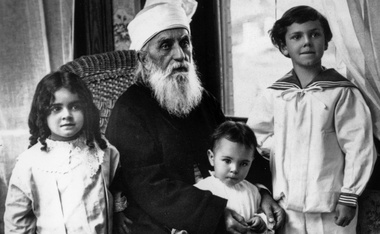

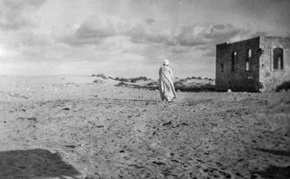
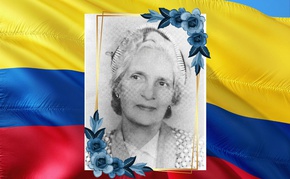







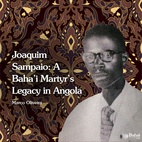
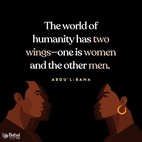

Wonderfully written and brought tears to my eye re-reading the story of Grace Ober which i have read a few times before but it never fails to affect me